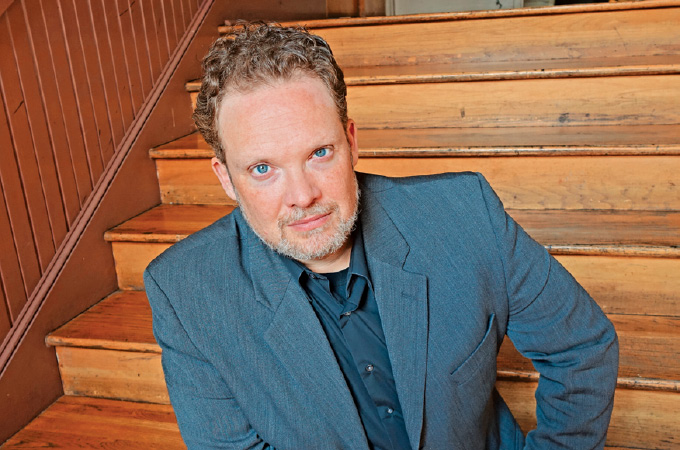jon truitt » stage director and operatic baritone
Vincenzo Bellini’s tragic opera Norma, performed in March at the Skip Viragh Center, was Jon Truitt’s first production with Winter Opera Saint Louis—and he is set for an encore in 2020. He will return next spring for Giacomo Puccini’s La Fanciulla del West (Girl of the West) and says he looks forward to sharing the excitement of opera with local audiences again. “St. Louis is fertile ground for this art form,” he says. “The community is very receptive. They know there’s nothing quite like experiencing a live performance.”
Truitt also performs as a baritone and sometimes fills both on-and off-stage roles in the same production. He says doing double duty is an especially challenging and rewarding experience, and it gives him a deeper understanding of cast members’ needs. He works to expand awareness of the art by teaching and mentoring young performers at Ball State University, where he is an associate professor of music and director of opera.
What does the role of stage director involve?
It’s like the visual version of a symphony conductor. If you can see it on stage, I’ve supervised it in some way. Set design, lighting, costumes, blocking—it’s my job to tie all of the elements together and help the cast members figure out where they should be and when. I anticipate problems and conflicts, which frees them up to give a better performance. For example, I’m not going to have a singer run up a flight of stairs just before hitting her highest note.
How does stage direction overlap with performing in a show?
I think there are two main kinds of opera stage directors—those who come up through regular theater and people like me who also are vocalists or musicians. Being a singer helps me bring extra awareness to the stage. In Norma, for example, there are moments when the vocalist has to be able to see the conductor. I know the importance of that firsthand, so I can make sure the singer is facing in the right direction at the right time.
What was it like working on Norma?
It was a great artistic experience for me. I was very pleased with it! Winter Opera has a positive, family atmosphere where everyone cares and works well together. There is a strong core team of people who are comfortable with each other, and that confidence comes through in the performance. The singers know the production will be a well-oiled machine; they don’t have to worry about the details and can focus instead on giving strong performances.
What will the Puccini production be like?
La Fanciulla del West is like an old western film, set in California in the mid-19th century but sung on stage in Italian. It premiered in 1910 at the Metropolitan Opera in New York. There are cowboys and Gold Rush miners, and the story tries to capture the spirit of the wide-open American plains. It’s not an opera that gets performed often, but I’m looking forward to doing something a little unusual.
What does opera mean to you?
I love that it combines so many of the fine arts—music, theater, visual art, even dance. The roles you play are dictated by the kind of voice you have, and there are lots of opportunities to challenge yourself. I have portrayed Don Giovanni, but I’m nothing like him, so it was fun to take on that character. And when you see and hear the audience’s appreciation at the end, it’s rewarding to know you have accomplished something of value. Somehow, my favorite opera is always the last one I did!
